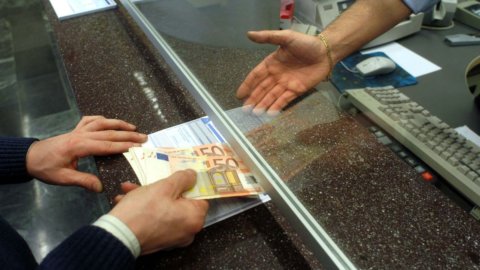As for the impact on Italian family businesses, the Covid crisis is having an almost double impact compared to that of 2008-2009: at the time it was 17,5% of companies that went bankrupt while this time, according to calculations by the AUB Observatory (AIDAF, Unicredit and Bocconi, with the support of Borsa Italiana), many more would be at risk. The estimate says that 25-30% of family businesses are at risk of closuredespite entering 2020 in a better balance sheet, income and financial situation than in 2009.
The Observatory monitors all Italian family businesses that have exceeded the turnover threshold of 20 million euros: 17.984 companies, of which 11.808 family-owned (equal to 65,6%). The analysis shows that, compared to the beginning of 2009, the share of family businesses with a truly compromised capital or income structure (negative equity or EBITDA) had fallen at the beginning of 2020 from 4,3% to 3,4% and that of companies with critical solidity indicators had dropped by ten points (from 38,8% to 29,9%), while companies with liquidity greater than debt had risen from 17,7% to 29,5% , However, 33% of companies showed an inadequate structure to deal with the crisis pandemic.
“In Italy – comments Francesco Giordano, CoCEO CB Western Europe of UniCredit – family businesses account for 43,7% of the market. The Italian figure is in line with the German figure of 39,5% and the Spanish figure of 35,4% and tells us how the restart of the European economy is closely connected to these corporate realities. Precisely for this reason, even more so in the delicate moment we are facing, the role of the banking system and financial support are crucial to sustain the competitiveness of these businesses".
The Observatory concludes with an initial analysis of the reaction of family businesses to the pandemic crisis, conducted on listed companies (net of banks and insurance companies). “The data confirm the great reactivity of family businesses and the market's appreciation for this characteristic,” says Fabio Quarato, curator of the Observatory. Although starting from a decidedly lower level (25% against 43% of the total sample, which includes family and non-family members), family businesses have almost caught up with the others in the use of smart working (85% vs. 93% of the sample total) during 2020.
Furthermore, in 77% of cases, family businesses they had taken steps to support employees, especially from the point of view of safety (protocols and supply of personal protective equipment). The result was, for the first half of the year, a more contained reduction in revenues (10,1% vs 11,9% of non-family members), an increase in employment (+3,4%) to be compared with a drop in non-family members (-1,4%) and a better stock market performance of 22,3%.
“Aside from the hope that the recovery will be faster this time around, our analysis shows that the only way out is greater recourse to equity, accompanied by an openness to external leadership and its desirable rejuvenation”, commented Guido Corbetta, holder of the AIDAF-EY chair of family business strategy in memory of Alberto Falck of Bocconi and curator of the Observatory with Fabio Quarato.





